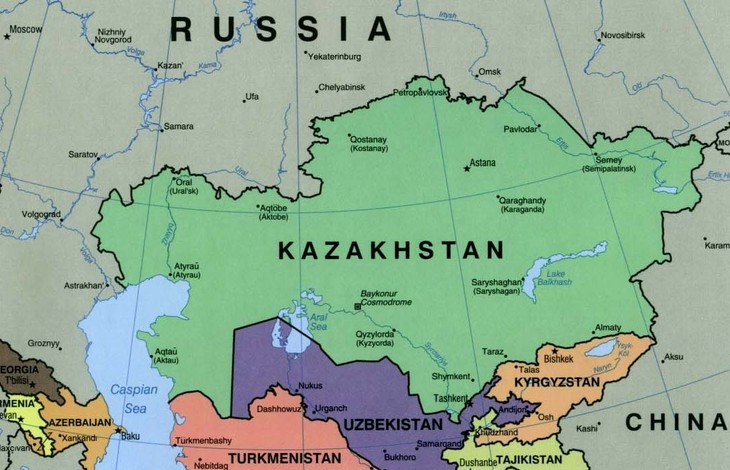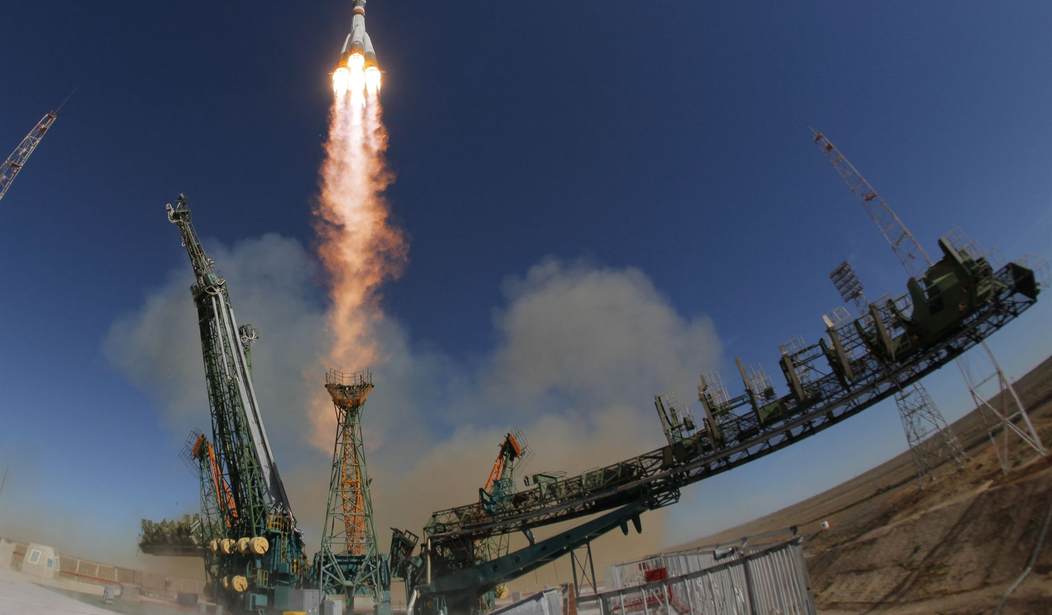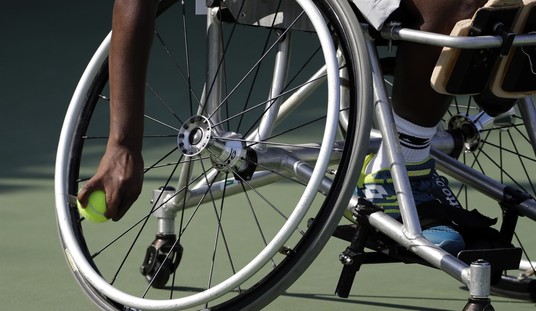For months now, we’ve heard about how Russia has amassed troops along its border with Ukraine and how Vladimir Putin has designs on the former Soviet state. The tensions between Russia and Ukraine are definitely worth our concern, but another former part of the Soviet Union should also grab our attention.
We haven’t heard as much about Kazakhstan as we have about Ukraine. You may recall that Biden’s scuttled nominee for Comptroller of the Currency, Saule Omarova, was born there, but Kazakhstan should be in the news these days for more trouble.
Tensions there began on New Year’s Day, when the Kazakh government lifted price controls on fuel, leading to a dramatic rise in gasoline prices. Violent protests ensued, and the authoritarian government attempted to crack down not just with police but also with restrictions on internet usage and social media.
Russia has sent in troops to help quell the violence, and President Kassym-Jomart Tokayev has given police and military the authority to shoot to kill protestors. Thousands of citizens have been arrested, and a police spokesperson ominously noted that “dozens of attackers were liquidated.” Former intelligence chief Karim Massimov has also been arrested for treason.
It’s a scary situation that has gone underreported in American media circles, and one analyst seeks to draw more attention to it.
Clint Ehrlich, a Moscow-based computer scientist who is associated with blockchain provider KRN, MGIMO University, and the Claremont Institute, posted an epic Twitter thread on Friday explaining why we should pay more attention to Kazakhstan.
Ehrlich leads with his belief that the tension in Kazakhstan “significantly increases the risk of NATO-Russia conflict.”
The situation in Kazakhstan is a much bigger deal than Western media is letting on.
I believe it significantly increases the risk of NATO-Russia conflict.
Here is my report from Moscow. A MEGA-thread… 🧵
— Clint Ehrlich (@ClintEhrlich) January 7, 2022
According to Ehrlich, Kazakhstan is as valuable to Russian interests as Ukraine and Belarus are. For starters, there’s the matter of Russia’s border with Kazahkstan. It’s the longest uninterrupted land border in the world. At 4,750 miles, that border is longer than the land border between the U.S. and Canada, which is 3,145 miles and is interrupted by water in several places.

Kazakhstan houses a key missile testing site and is vital to Russian’s nuclear fuel industry as well.
“Russian-backed Uranium mining operations are active in the country,” Ehrlich tweeted. “Uranium from Kazakhstan is enriched in Novouralsk, Russia and then returned to Kazakhstan for use in Chinese nuclear-fuel assemblies.”
Russia’s Baikonur Cosmodrome is also located in Kazakhstan. If you’re a NASA history nut like me, you’ll recall that Baikonur is where the Russians launched their Soyuz program during the space race, but it’s also where we launched our astronauts to the International Space Station when we shamefully didn’t have a vehicle to get astronauts into orbit during the Obama years.
On top of all these issues, Ehrlich points out that the ethnic makeup of Kazakhstan is of interest to Russia too. A minority of the country is made up of ethnic Russians, who are Russian Orthodox Christians, and continued tensions could put Christians against Kazakh Muslims.
Russia has already committed 3,000 troops to help the Kazakh government, and what’s to stop Putin from sending more military in? The fact that Russia has intervened on the side of the government in Kazakhstan could also give pause to protesters, who might think twice about bucking a Russian-backed regime.
Related: Russia Says It’s ‘Not Bluffing’ and Warns of Large-Scale Conflict in Europe
So why now? Ehrlich says that, according to Putin and his conspiratorial bent, it’s a matter of timing.
You see, Putin has demanded that NATO not admit Ukraine into its body and has dangled his threats to invade Ukraine to make sure that doesn’t happen. And talks between NATO and Russia over Ukraine were supposed to begin next week.
Cue Kazakhstan.
Ehrlich says that Putin considers the tensions in Kazakhstan to be an act of “hybrid war” in which Western organizations are encouraging protest and unrest in order to destabilize a country on Russia’s border.
It is true? Maybe, Ehrlich notes.
It's debatable whether the West has anywhere near the power to spark revolutions that Russia contends.
Yet America plays into Russian paranoia by funding "civil society" NGOs overseas.
When revolutions occur in countries where they're active, Russia connects the dots.
— Clint Ehrlich (@ClintEhrlich) January 7, 2022
Tokayev has asked for assistance from Russia’s version of NATO, the Collective Security Treaty Organization (CSTO), while CBS News reports that Russia is referring to the conditions in Afghanistan as a belligerent act:
“We view the recent events in a friendly country as an attempt to undermine the security and integrity of the state by force, using trained and organized armed formations, that is inspired from the outside,” Russia’s Foreign Ministry said Thursday of the decision to deploy forces to Kazakhstan. The statement offered no further information on the purported “outside” inspiration for the protests.
All of this continues to help Russia see the West as a threat to its sphere of influence.
“In the short term, while Kazakhstan remains volatile, Russia’s freedom to maneuver in Ukraine may be constrained,” Ehrlich states. “But this will not motivate Moscow to deescalate the crisis in the long term. Instead, it will only strengthen perceptions of the West as an existential threat.”
And Russia will continue to act against what it sees as threats from the West.
Yet we haven’t heard much about Kazakhstan here in the U.S., especially compared to coverage of Ukraine.
“In America, the situation in Kazakhstan is a small news item,” Ehrlich tweeted. “In Moscow, it is currently receiving 24/7 news coverage, like it’s an apocalyptic threat to Russia’s security,” even on Jan. 7, the day that Russian Orthodox Christians celebrate Christmas.
Ehrlich believes that Russia’s actions in Kazakhstan should occupy a bigger place in our news cycle than it does.
Maybe we need to pay attention.









Join the conversation as a VIP Member